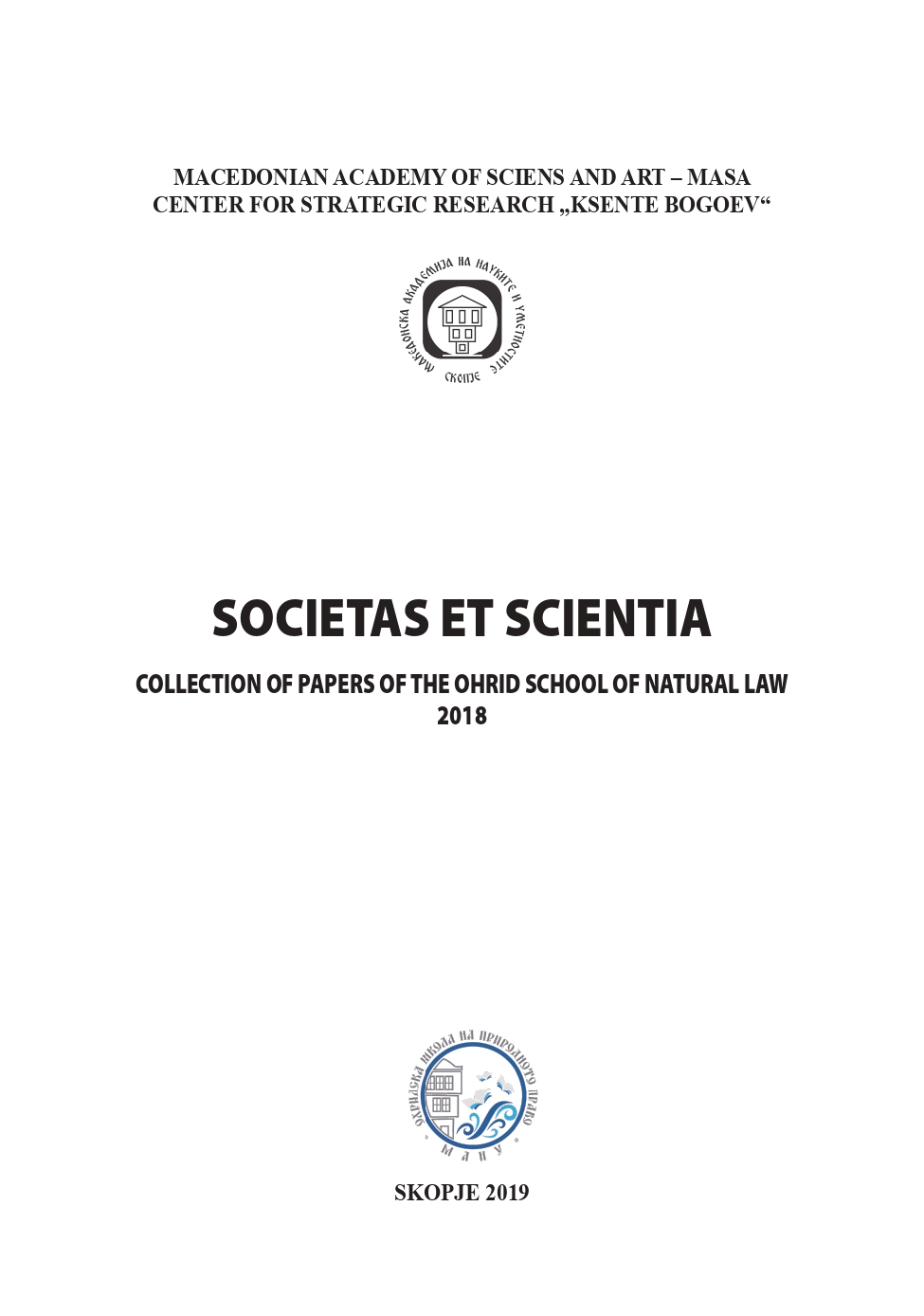ПРАВНИ ИНСТРУМЕНТИ ЗА ЗАШТИТА НА ЖИВОТНАТА СРЕДИНА
LEGAL INSTRUMENTS FOR ENVIORMENTAL PROTECTION
Author(s): Elena Mujoska Trpevska
Subject(s): Law, Constitution, Jurisprudence, Energy and Environmental Studies
Published by: Makedonska akademija na naukite i umetnostite
Keywords: Environment; legal instruments; protection and promotion; climate system
Summary/Abstract: Providing conditions for environmental protection and improvement in order to exercise citizens’ right to a healthy environment are measures and activities of public interest, and the Republic of Northern Macedonia, municipalities, the city of Skopje, and municipalities in the city of Skopje, as well as all legal entities and individuals, are responsible for their realization and respect. In the areas of environment, biodiversity, and other natural resources, as well as the protection of the ozone layer and the protection from the negative impact on the climate system, all entities are responsible for the protection and promotion of the quality and condition of the environment, i.e. soil, water, and air; in the areas of environment, biodiversity, and other natural resources, as well as the protection of the ozone layer and the protection from the negative impact of man on the climate system. In the Republic of North Macedonia there are numerous laws and regulations that cover almost all aspects of the environment, although some of them are assessed as outdated and inappropriate for the current situation in the country. Another general weakness of the legal framework for the environment is the lack of its implementation as a result of the institutional division of the state bodies responsible for implementation, the insufficient staff and technical resources in the administration and inspection services at the local level. All environmental legislation is under review. Despite the ongoing process of adopting new laws or amending existing laws on specific areas of environmental protection, many questions remain open in key areas and strategic goals and policies, further in terms of timeliness in the adoption of bylaws governing aspects of environment, financing, environmental awareness and public participation, waste management, air quality control, water management, industry and spatial planning.
Book: SOCIETAS ET SCIENTIA, ЗБОРНИК НА ОХРИДСКАТА ШКОЛА НА ПРИРОДНОТО ПРАВО 2019-2021 ГОДИНА
- Page Range: 80-106
- Page Count: 27
- Publication Year: 2022
- Language: Macedonian
- Content File-PDF

